We Analysed 100s of Term Paper Feedbacks & Found These 9 Points Professors Look for in a Great High Quality Term Paper
Ever wondered about why you got a 6 on your term paper but your classmate got a 9? Or maybe even a perfect 10! While most students are aware of the basic big things that go into writing a term paper, very few students pay attention to even the minutest details that can actually take their term paper from a 7 to a 10. Based on 100s of feedback that our students have received over the years from their professors we found out a total of 9 points that can instantly elevate your term paper into a high quality term paper.
- Focus on the thesis:
The first things that every professor wants to check is whether you have appropriately focused on your thesis. Is there a main point in your paper that is being continuously highlighted? Does your term paper clearly spell out the main thesis or hypothesis that you have set out to talk about? If this main point in your writing is clearly noticeable, that is if you have throughout the research paper been able to maintain focus on the one main idea of your thesis statement then you have successfully started on the path to writing a great high quality term paper.
Often students start writing based on some thesis and then somewhere by the middle of the term paper or essay get diverted onto other related issues and start putting too much focus on unnecessary details. This takes your term paper off the main topic and makes it look incoherent and fuzzy to the reader. Thus, it is important to read your paper again and again to make sure that you have not derailed from the main focus thesis of your term paper and every section of your term paper is re-inforcing your main focus thesis.
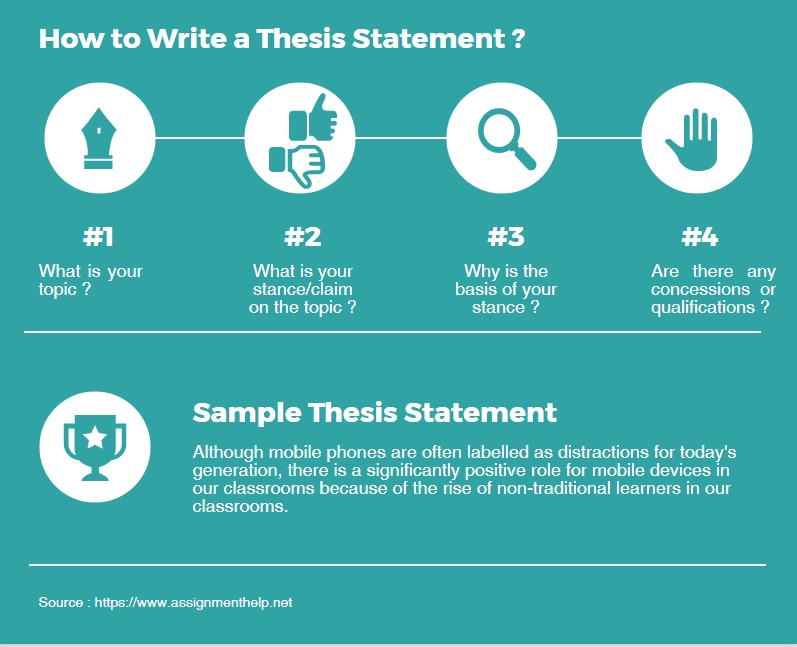
To do this first and foremost clearly spell out your thesis statement and make sure that while reviewing the literature sources you do not tread too far off from the focus.
- Comprehensive Literature Review:
Once the thesis of the term paper is clear, it is to be substantiated from other scholar sources. While this is in fact common knowledge, most students choose to consult only a limited number of resources and believe that by choosing 2-3 literature materials the job is done. However, a great high quality term paper writer always gives a reasonably good number of reputed literature sources to comprehensively substantiate on the subject thesis.
Read a variety of literature sources ranging from books, journals, conference papers and proceedings, articles, news sources, thesis of other students/teachers and try to find different literature formats to support your thesis. These can include quotes, examples, reasoning, logic, opinions, forecasts, data, surveys, paraphrases, inferences. The purpose of the literature review can also be different depending upon your term paper requirement. The following infographic is very useful in terms of writing a great review of literature.
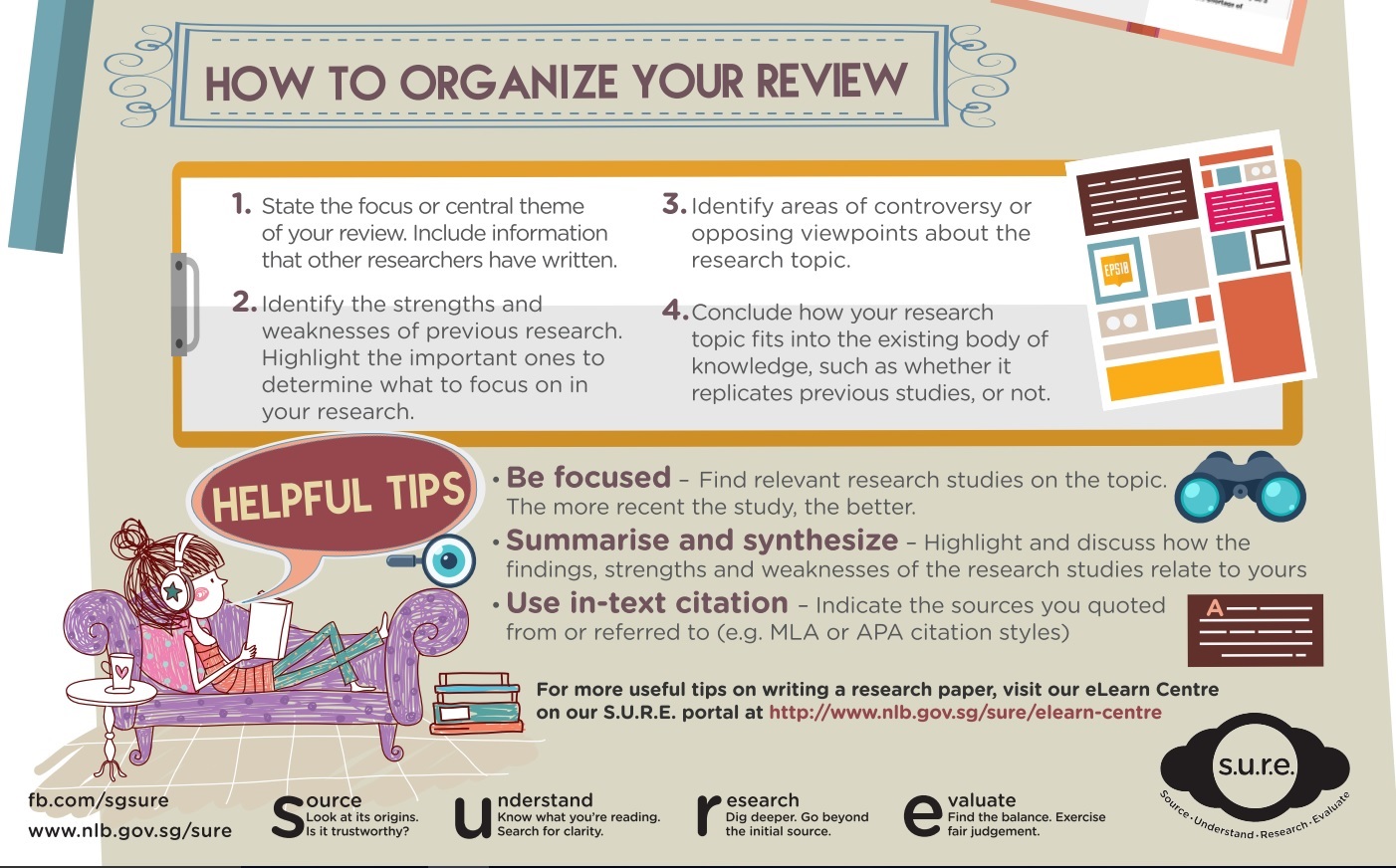
Your entire term paper might itself be centered upon the review of literature concerning your thesis statement. Otherwise the literature review might be a preface to outline the purpose of your thesis statement.
In either cases a good high quality term paper’s literature review will critically analyse a chunk of reputed research work published in connection with your thesis statement through summary, classification and comparison of previous research works.
- Citations and referencing:
It is mandatory in every term paper writing as well as any other research essay that all statements and facts which are not “common knowledge” must be referenced to their source. The professors lay a great emphasis on whether you have completely and correctly followed the style of referencing. There are various styles of referencing and citations such as the APA style referencing, MLA style, Chicago referencing, Harvard style, IEEE format; to name a few.
Make sure that while referencing and citing your sources you follow the referencing and citation guidelines provided by your course instructor or supervisor. A great high quality term paper must strictly adhere to the citation and referencing style that the professor or supervisor wants to follow.
All references and bibliography should be carefully added whether in the footnotes or at the end of the research paper, depending on the style of referencing that you are following. Styles like APA and MLA referencing style require intext citations while Chicago style is used for citations in the footnote. Sometimes, students use external reference importers or citation generators. In this case make sure that you follow the exact same referencing/citation style throughout the term paper. Check out this amazing infographic to create an MLA citation instantly.
The citation should also include all relevant details such as author’s full name, year of book/article publishing, general goals of research, context for research. Sometimes if you are using jargons or specific terminologies and events it is important to specify their definitions or histories before the body of the paper begins. The in-text citation must also be done as per proper rules, wherever required.
- Voice of the Writer
By “voice of the writer” it means that a term paper reflects the narration of all ideas and reviews or pre-published sources in the “author’s own words” and not be a verbatim copy of other sources. This will require judicious utilisation of paraphrasing while preserving the writer’s own voice, words and style throughout the text. Your term paper should be a coherent narration of ideas that reinforce your thesis statement and not a catalogue of related literature.
Term paper writing will require students to integrate information from pre-published sources into your own term paper to develop a credible and authoritative argument. However, in doing so you need to be able to tackle a twin problem of plagiarism and voice of the writer. Plagiarism refers to an attempt to steal someone else’s idea or product and pass it off as one’s own or spin it to derive a so-called new idea without giving credits to the original source. This is a breach of academic and intellectual integrity, is easily detectable for professors through plagiarism-detection softwares and is severely punishable in every university.
Therefore, for avoiding plagiarism, students are required to quote, legitimately paraphrase and acknowledge sources.
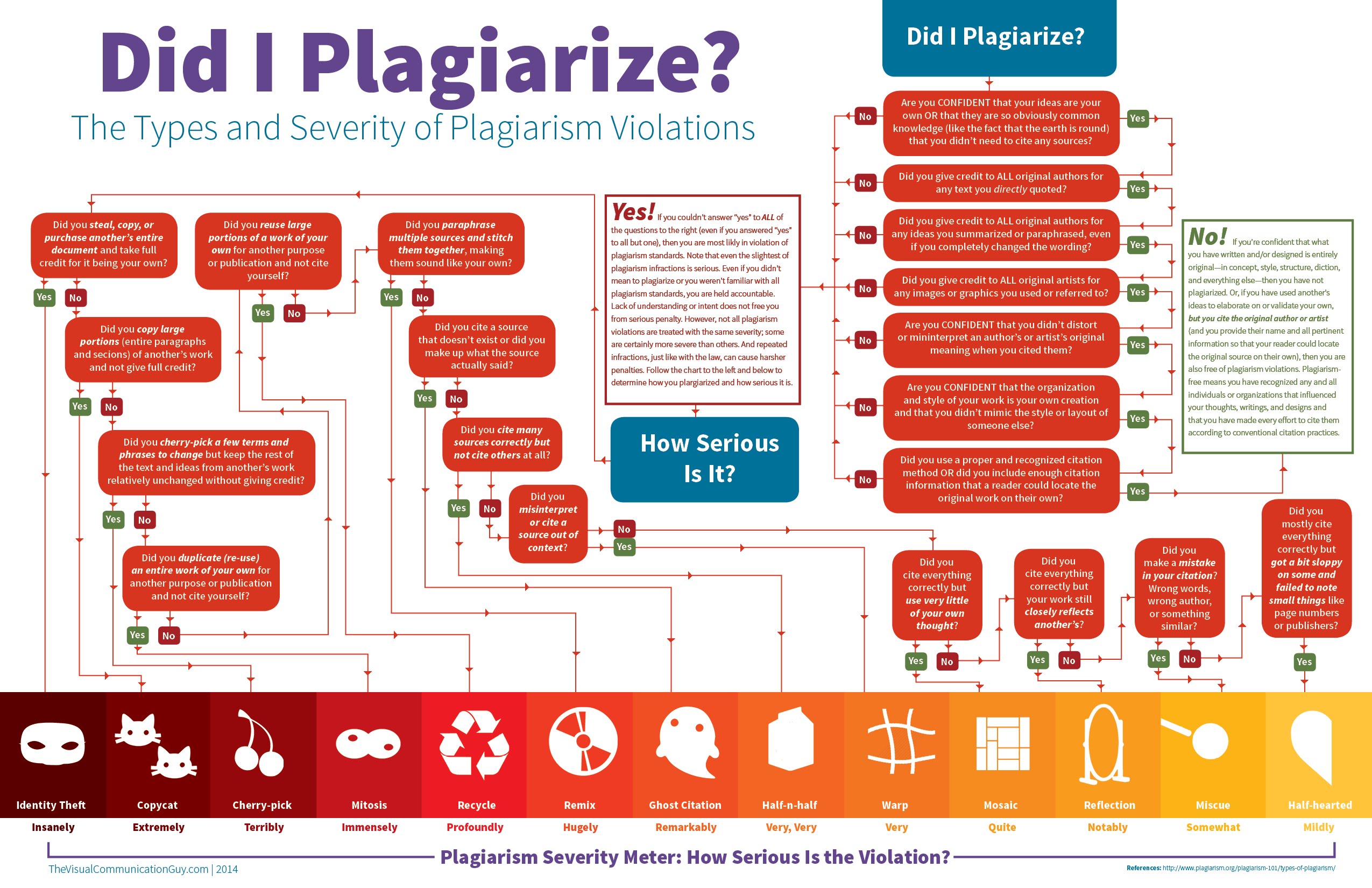
For paraphrasing another source, it is important to first thoroughly read the literature source and understand it. Following that choose specific ideas and terms that you want to utilise for reinforcing your ideas and arguments. Then the summarisation or comparison of literature must be done in your own “voice” that is in your own words narrating what the original source has said. It is acceptable to selectively use specific phrases, ideas and terms with quotation marks.
If a term paper writer out rightly borrows another author’s material on a word-for-word basis or largely utilises author’s expression and sentences as-it-is (that is directly lifting and copying), even if they are slightly changed whether with or without citation but no quotation marks then it is considered plagiarized.
Alternately there can be patchwork plagiarizing where the student utilises certain pieces of another author’s work, reorganises them into her own term paper without any quotation marks.
A legitimate paraphrasing would, however, require the term paper writer to document her source’s material and specific-phrases (with direct reference or quotation marks) while adequately modifying the language and structure to make it fit into her own term paper’s context and purpose.
- Audience:
College term papers are intended to be suitable for reading by college-level audience which includes readers 18-25 years of age. Students need to make sure that the vocabulary and sentence formation used in their term paper is appropriate for college-level readers. Any persuasive elements, appeals to logic and appeals to emotion must be accordingly chosen for your college term paper. Audience is especially critical when deciding about the level of vocabulary, language as well as length of explanation.
Students must keep in mind if the audience will be students from a particular discipline/course or will they be generalised cutting across various majors and specialisation. In case your term paper is to be presented in front of students from a wide-range of disciplines rather than a specific department, it is helpful to carefully explain all the jargons and heavy technical words in the beginning so that the readers face no difficulty in understanding your arguments.

The literature review you are choosing will also depend to a huge extent on your reader audience. Sometimes while writing a term paper, the writers do not explain their literature review sources and their intentions of including them very well.
This makes it difficult for other readers to connect the dot. The literature review material must be explained very well making sure that it is not too personal or informal), or only meant for experts. The text of the term paper should also not be too dense and short.
- Presentation of Information:
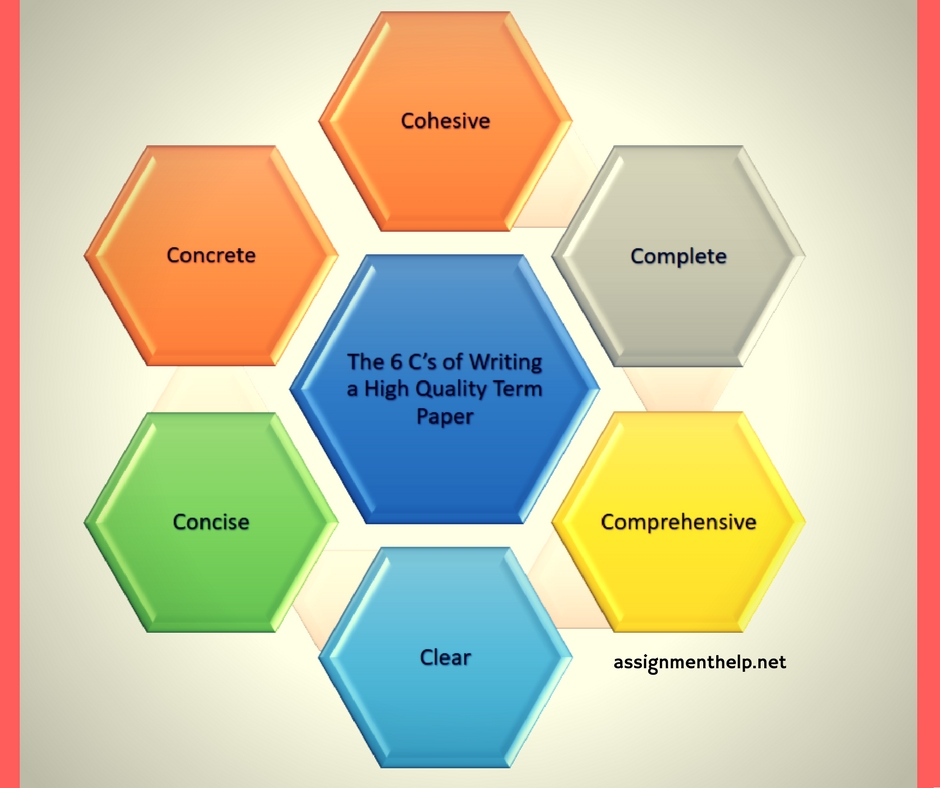 All information in your term paper should be presented in a complete and comprehensive manner. This reflects a great overall flow of ideas and coherence in presentation. The term paper writer must present all arguments fully, completely supported by enough evidence and claims in literature. All exceptions and assumptions must also be carefully mentioned.
All information in your term paper should be presented in a complete and comprehensive manner. This reflects a great overall flow of ideas and coherence in presentation. The term paper writer must present all arguments fully, completely supported by enough evidence and claims in literature. All exceptions and assumptions must also be carefully mentioned.
Any argument should not lack a definitive conclusion. It is also useful to consider and include a rebuttal of every argument to make the writing fair. This shows that the term paper writer has fully considered all views and lines of thoughts.
- Structure of the Term Paper:
The format for structure and presentation of the term paper can differ based on the discipline you are writing it for. Students must be fully aware of the format and organisational structure that their course instructor or supervisor wants them to use for the term paper.
It is important to stick to the term paper structure and formatting as has been mentioned by your course instructor. In case your professor or supervisor does not mention any guidelines, you can either explicitly email your professor to query on this or you can use a typical format for term paper which includes an abstract, an introduction, a discussion on methods, followed by discussion of results and finally the conclusion.
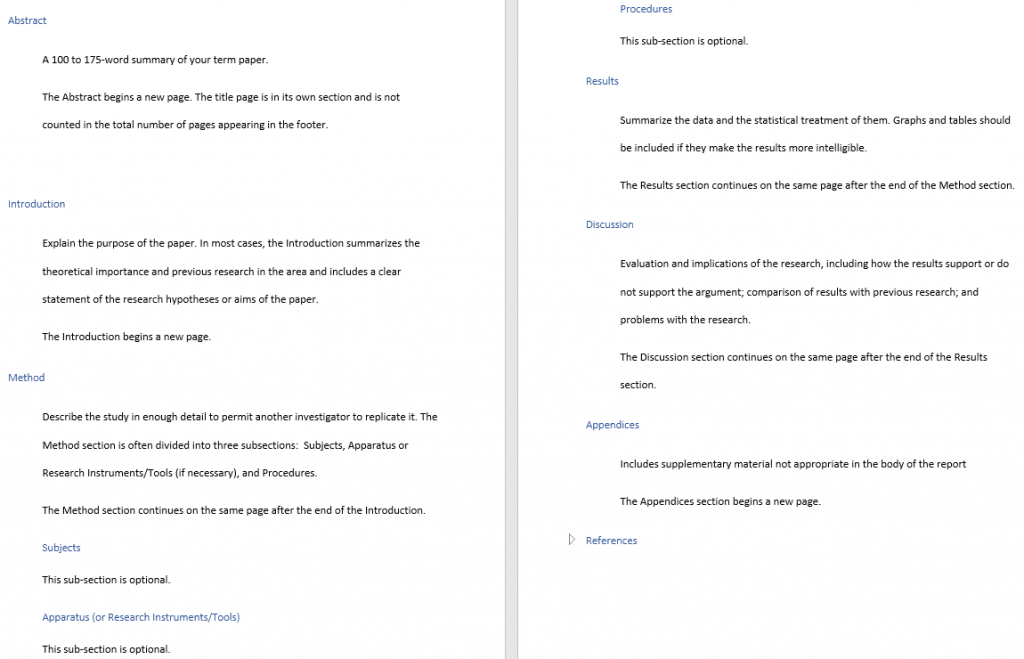
Suppose if it is a lab report or a scientific report, it might require IMRAD format, that is Introduction, Methods, Results And Discussion. If it is an argumentative essay based term paper, it should be organised clearly to present all arguments holistically. Individual paragraphs should be clearly organised and demarcated to present the arguments in a coherent manner.
It is also important to make utilisation of meta-discourse elements in writing and discussion such as using words like “to sum up”, “I believe” to highlight your intention or words like “certainly”, “must”, “perhaps” to denote writer’s confidence and phrases like “note that”, “therefore”, “however”, “finally” to direct readers’ thoughts while words like “first”, “second”, “finally” can provide a structure to the text.
- Writing Style:
Writing style refers to the way you write sentence patterns and the diction used in your term paper. All sentences in the English language are majorly categorized into ten sentence patterns which are determined by the placement of nouns, verbs, adjectives, and adverbs.
It is better to use a variety of sentence patterns in your writing as it makes the work non-boring to read. Your term paper’s diction, that is the style of writing, is also dependent upon your choice of words. As mentioned earlier, all words should be appropriate for a formal presentation.
The use of informal elements, slang, unnecessary acronyms, contractions, SMS language or any other foul terms should be strictly avoided when writing a high-quality term paper. It is also important not to use too much first-person language like I, me, You.
Additionally, refrain from using too many jargons. The overall word-usage and sentence formation should be appropriate for college-level assignments.
- Term Paper Mechanics:
Mechanics majorly refer to punctuation, spelling and grammar. In the end, when you have completed writing your term paper, it is important to proofread it for spelling, punctuation and grammar. It can be easily done with in-built spell-checks and grammar check in your writing software like Ms-Word.
You could also take the help of your friends and family or hire an online proofreader from a trusted source to do this for you.

An online proof-reader might be able to highlight some review for grammatical points or suggest some new grammatical errors. Many times, writers also jumble up spellings such as affect-effect, lay-lie, there-their, and many such common sounding words. This is why it is imperative to proofread your term paper at least twice and get peer feedback on this as well.
Mistakes of grammar, spelling and punctuation can take away the professionalism from an otherwise well-written term paper.
This brings us to an end to the 9 points that you must consider while writing a high-quality term paper as these are the most important points that professors look for while grading your term paper. Thus, next time you are writing your term paper assignment do not forget to pay attention to all these 9 points and we are sure you will come out with a high-quality term paper that will definitely get you that A grade you have always wanted.
Know more secrets to writing a high quality term paper ? Share with us in comments.
p.s. If you are looking for online writing help for your term paper do not forget to check out the high quality term paper writing assistance service from Assignmenthelp.net




